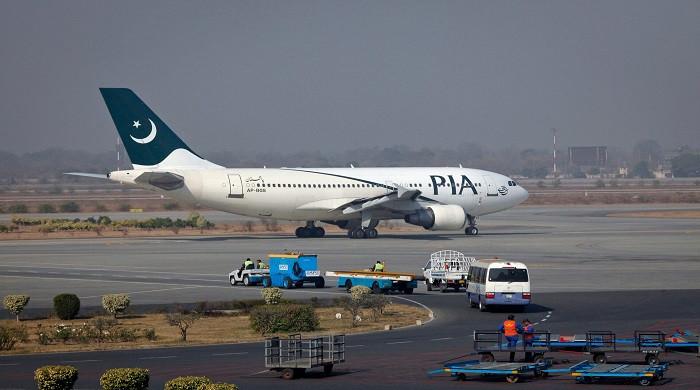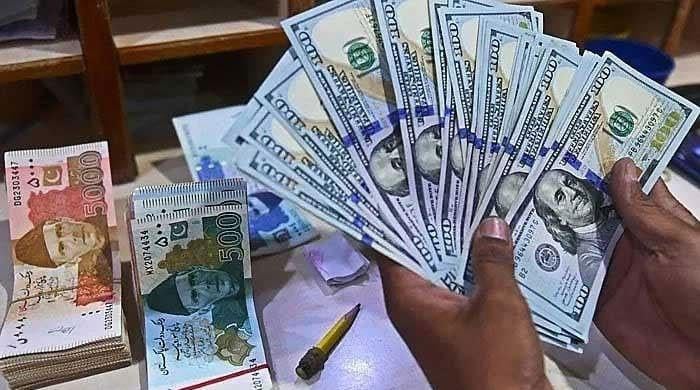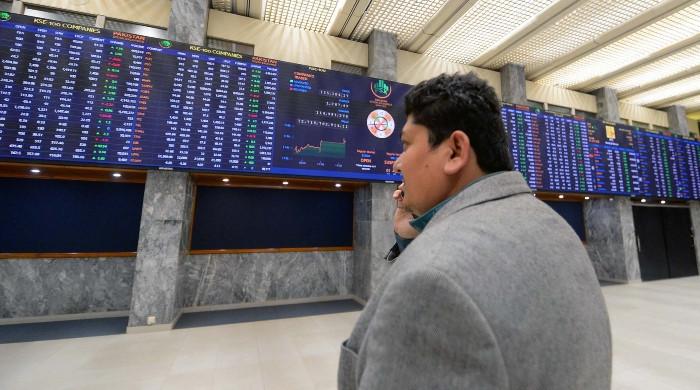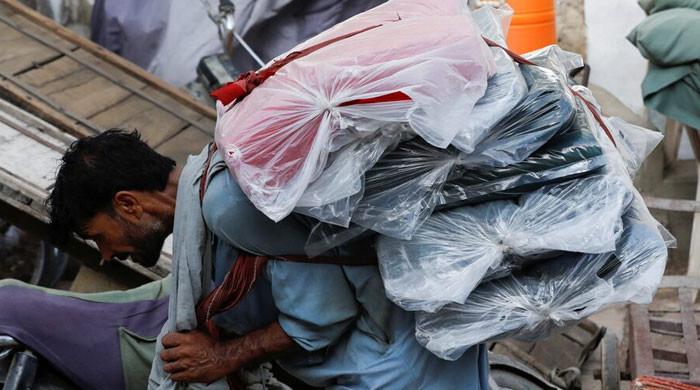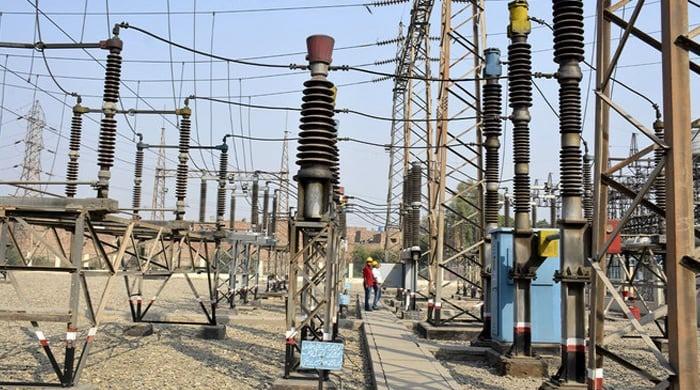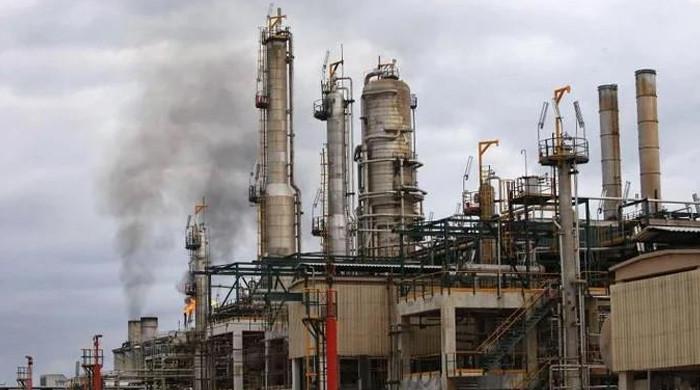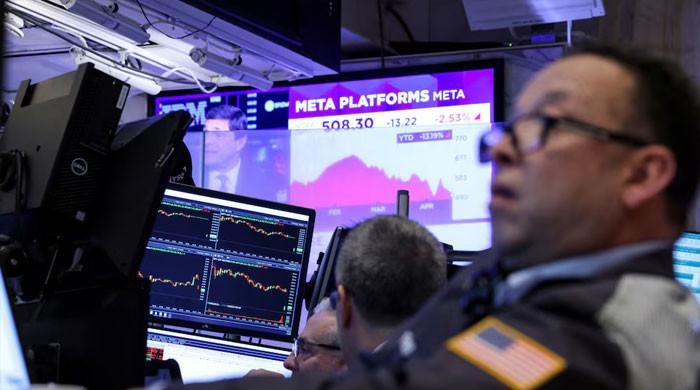Pakistan, Saudi Arabia vow to promote investment in key sectors
Aurangzeb, Al-Jadaan renew commitment on sidelines of World Bank-IMF Annual Meetings in Washington DC
October 23, 2024
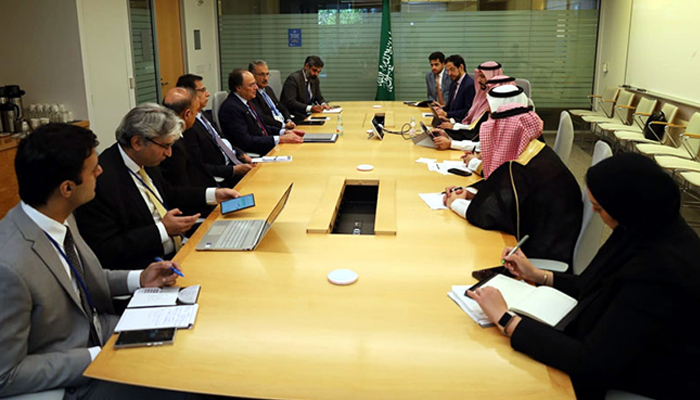
- FinMins appreciate historical, fraternal bonds between 2 countries.
- Both sides agreed to advance cooperation in several areas.
- Aurangzeb in Washington to attend WB-IMF annual meetings.
Appreciating the historical and fraternal bonds between Pakistan and Saudi Arabia, both sides have expressed resolve to further deepen mutually beneficial economic ties, enhance bilateral trade, and facilitate investment in key sectors.
The commitment was renewed at a meeting between Finance Minister Muhammad Aurangzeb and Saudi Minister of Finance Mohammed Al-Jadaan on the sidelines of the World Bank-IMF Annual Meetings in Washington DC.
Aljadaan shared his experience of reforms in the energy sector. Both sides agreed to advance cooperation in areas of mutual interest, the finance ministry said in a post on X.
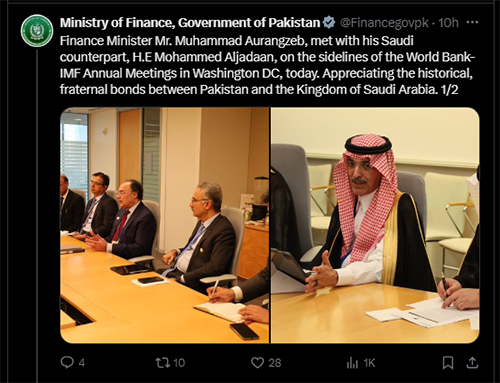
Aurangzeb is leading a Pakistan delegation to the WB-IMF Annual Meetings, being held in Washington DC from October 21 to 26, state-run APP reported.
Other delegates include Finance Secretary Imdad Ullah Bosal; Secretary Economic Affairs Dr Kazim Niaz and State Bank of Pakistan (SBP) Governor Jameel Ahmad.
It is noteworthy to mention here that Pakistan and Saudi Arabia had inked signed several memorandum of understandings (MoUs) for $2 billion bilateral investment agreements during Saudi Investment Minister Khalid Bin Abdul Aziz Al Falih's visit to Islamabad last month.
Khalid-led delegation was comprising by Saudi companies from various sectors including construction, engineering, financial services, IT, hospitality, agriculture, food, energy, and petroleum are part of the visiting delegation.
The agreements included a $70 million investment in agriculture sector, establishment of advanced semiconductor chip manufacturing in Saudi Arabia, establishment of a textile industry, a white oil pipeline project, an MoU for exploring investment opportunities, a hybrid power project, development of transformer manufacturing facilities in both the countries, cyber security measures for customers and businesses, and the export of spices and vegetables from Pakistan.
Additionally, the agreements outline the establishment of a manufacturing facility for surgical and dental equipment and collaboration on the federal government's E-Taaleem and digitalisation programmes.
Pakistan, Turkiye cooperation
On the WB-IMF Annual Meetings sidelines, Aurangzeb also held a meeting with his Turkiye's Treasury and Finance Minister Mehmet Şimşek.
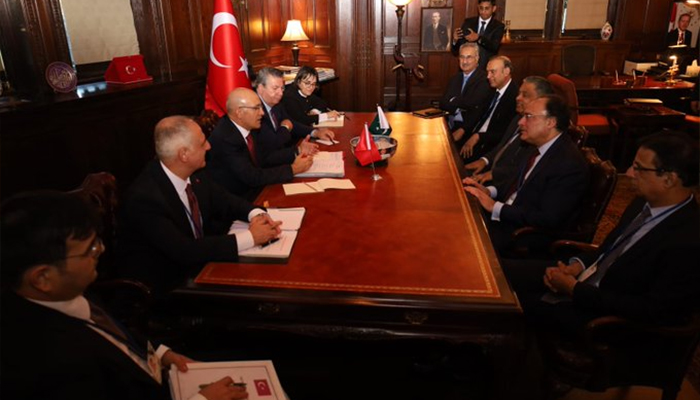
Recalling the historical, fraternal bonds and multi-faceted cooperation between Pakistan and Türkiye, the finance minister stated that there existed great potential to enhance the current volume of bilateral trade.
He said that Pakistan could learn from Türkiye's experience of power sector reforms and invited Turkish firms to enter into mutually beneficial joint ventures (JVs) with Pakistani counterparts.
US Treasury official briefed on tax measures
The finance minister met the US Treasury Department Assistant Secretary for International Finance Brent Neiman.
He briefed Neiman about measures to broaden the tax base, align the provincial AIT [Agriculture Income Tax] regimes with federal personal/corporate income tax rates, and rationalise subsidies.
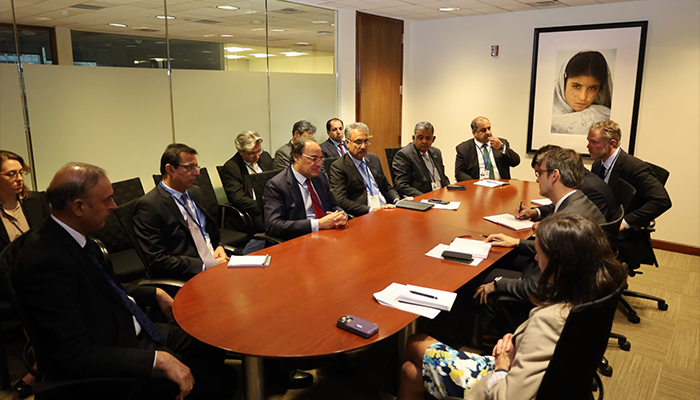
Aurangzeb also apprised him about the government’s steps to introduce reform in the energy sector, overhaul SOEs.
Additionally, the incumbent government’s moves to build climate resilience through the effective implementation of the Climate-Public Investment Management Assessment (C-PIMA) Action Plan and enhanced climate adaptation investments were also discussed.
He thanked the US government for its support in securing the IMF’s Extended Fund Facility for Pakistan.




